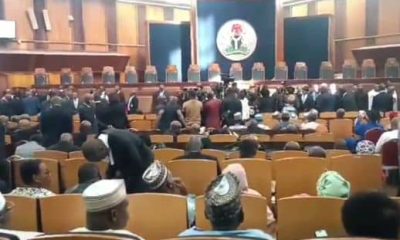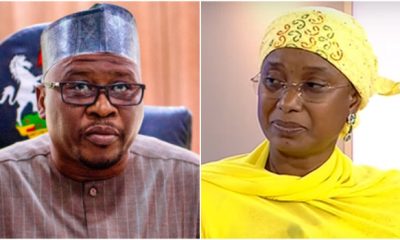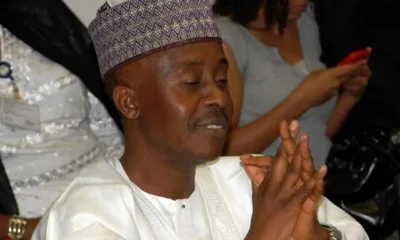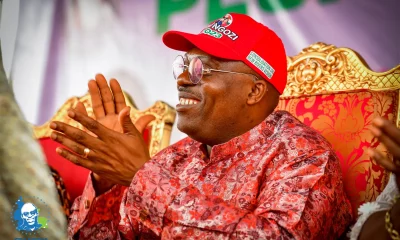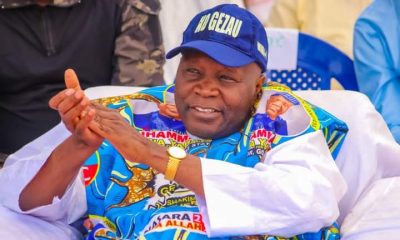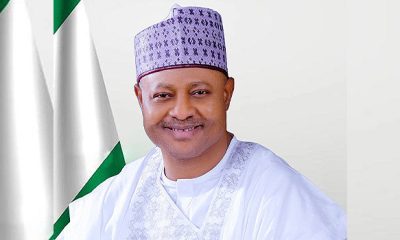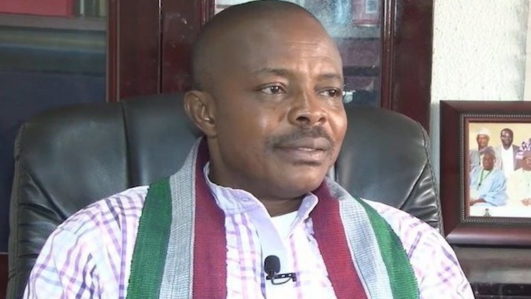The Supreme Court, on Monday, affirmed the election of Governor Hyacinth Alia of Benue State.
A five-man panel of Justices of the Apex Court dismissed an appeal that the Peoples Democratic Party, PDP, and its candidate, Titus Uba, lodged to challenge the outcome of the election that held in the state on March 18.
The Justice Inyang Okoro-led panel dismissed the appeal after counsel for the appellants, Mr. Sebastian Hon, SAN, pulled out of the case, which the court noted involved pre-election issues.
It will be recalled that the Court of Appeal in Abuja also affirmed Alia of the All Progressives Congress (APC) as the validly elected governor of the state.
The appellate court, in a unanimous decision by a three-member panel of justices, dismissed Uba’s appeal as lacking in merit.
In its lead judgement that was delivered by Justice Onyekachi Aja Otisi, the court said it found no reason to set aside the verdict of the Benue State Governorship Election Petition Tribunal, which had on September 23 validated Alia’s election victory.
It held that some of the grounds the PDP and it candidate raised in the appeal not only bordered on pre-election issues but also had elements of crime.
According to the appellate court, the appellants had raised the issue of forgery against the Deputy Governor of the State, Mr. Samuel Ode.
It held that since the allegation that Ode submitted forged documents to the Independent National Electoral Commission, INEC, in aid of his qualification to contest the election, was criminal in nature, it ought to have been proved beyond reasonable doubt.
More so, the appellate court stressed that the issue of non-qualification of a candidate, being a pre-election matter, could only be ventilated at the Federal High Court and not before the election tribunal, as was done by the appellants.
It held that since the 14-day period that the 1999 Constitution, as amended, allowed for the eligibility of a candidate in an election to be challenged had elapsed, the issue had become statute-barred.
Besides, the court dismissed the appellants’ contention that the APC failed to submit the name of Governor Alia to INEC at least 180 days before the gubernatorial election was held.
It held that the argument was worthless in view of the fact that the primary election that produced Alia as the flagbearer of the APC in the governorship election was ordered by a High Court and conducted within the period the court stipulated.
In its final analysis, the appellate court held that the appellants failed to discharge the burden of proof that was placed on them by the law.
It, therefore, resolved all the issues that were raised in the appeal against the appellants.

 News3 years ago
News3 years ago
 Entertainment2 years ago
Entertainment2 years ago
 News3 years ago
News3 years ago
 Privacy3 years ago
Privacy3 years ago
 Sports2 years ago
Sports2 years ago
 Entertainment2 years ago
Entertainment2 years ago
 News3 years ago
News3 years ago
 Opinion3 years ago
Opinion3 years ago

